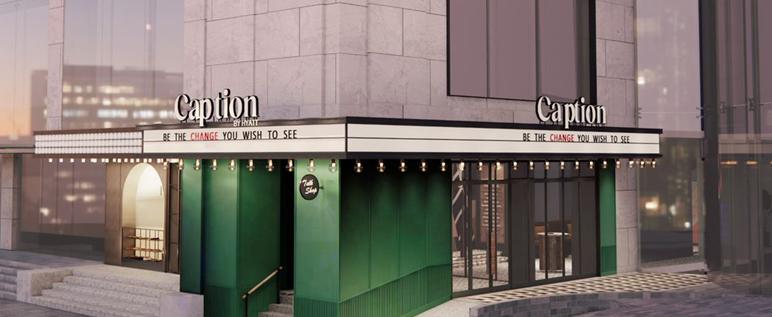
Text/ Zhong Dai Editor / Tan Lu
The pandemic has brought major challenges to the hospitality industry, as well as new opportunities.
Recently, Yan Qingguang, senior vice president of development and owner relations in The Asia Pacific region of Hyatt Hotel Group, said in an interview with 21CBR and other media that in the past two years, Hyatt, a traditional luxury hotel group, has increased its digital transformation efforts, including the construction and marketing of e-commerce channels, the retention of private domain traffic, the operation of the point system, and cooperation with third-party platforms.
Internationally, Hyatt has been exploring lifestyle brands for years. In the mainland, Hyatt's lifestyle brands include Andaz and Alila. In 2022, Hyatt will bring four lifestyle brands, Hyatt Premier, Hyatt Choice, and Thompson Hotels, to the Chinese mainland market for the first time.
Yan Qingguang is optimistic about the new track, "our classic series brand will continue, and in the next few years, the real flashpoint will be in the luxury and lifestyle hotel market".
Qingguang Yan, Senior Vice President of Development and Owner Relations, Hyatt Hotels Group, Asia Pacific
Digital transformation
Reporter: In the past two years since the outbreak of the epidemic, how has the recovery of the hotel industry been?
Yan Qingguang: The recovery of leisure resorts is very fast, because outbound travel is restricted, and consumers are flocking to domestic destinations. We are feeling a strong recovery in Sanya, Chongming, Chengdu and other markets. The recovery of the business market will take time, because the number of foreign customers has decreased, and domestic customers have become the main force of consumption. The epidemic has made us look more inward and pay more attention to maintaining domestic demand.
A large portion of Hyatt's booking business in Greater China has shifted to platforms in China, as Chinese mainland consumers are most familiar with these platforms. Hyatt has stepped up the construction of e-commerce channels, including the Fliggy flagship store and the WeChat Mini Program, which are all operated by ourselves.
In the past two years, we have better understood the consumption preferences of Chinese consumers, such as using OTA platforms and WeChat Mini Programs for booking, payment, double 11 purchase coupons, etc., which are different from the habits of American consumers.
We're also rapidly changing the way we market, with Hyatt just over 100 hotels in Greater China and our Fliggy flagship store ranking third in total sales among international hotel groups.
Reporter: Many hotel groups are creating private domain traffic, such as doing membership systems, etc., what is Hyatt's action in this regard?
Yan Qingguang: What we are most proud of is our private domain traffic. Why do owners work with us? Because we have a high-quality, high-spending power customer base.
We attach great importance to the maintenance of our customers. The World of Hyatt loyalty program has a number of rollouts in 2021. For example, members can book a hotel at a discounted rate with exclusive benefits and rewards. Members can also earn points for bookings on the official website, WeChat Mini Program and WeChat Mall.
Reporter: How do you view third-party platforms?
Yan Qingguang: At present, Hyatt still hopes to maintain close cooperation with third-party platforms. We need to balance the two aspects, we hope that the booking volume of the self-operated platform can go up, and the third-party platform can also bring orders.
Add lifestyle brands
Reporter: What are the advantages of Hyatt's increased layout of lifestyle brands?
Yan Qingguang: We started doing lifestyle hotels very early. Lifestyle brands have many market segments. Each of Hyatt's brands has its own unique positioning under the umbrella of lifestyle. Thompson Hotels, Hyatt Centric, Hyatt Regency, Andaz, etc., each with their own target audience and brand tone, are facing a completely different market and providing experiences.
Reporter: What are the standards of a good lifestyle hotel?
Yan Qingguang: The source of lifestyle is not marble floors, expensive hotel facilities, and maverick artworks. Hotels should have a deep cultural connection with the local area, so that the hotel itself becomes a travel destination. Some of our classic brands also inject some interesting localization elements, including design and local culture presentation.
Second, lifestyle hotels should support the development of the community where the destination is located, and have a positive impact on the economy, people and employment of the destination. For example, in a place like Shanghai, where we have little money, we insist on having our own organic farm, requiring hotel restaurants to only source ingredients from a radius of 5 kilometers, because that's the local flavor that guests want. For example, Shanghai Alila will not have plastic bottles. We have our own water plant, we fill our own glass bottles and wash our own glass bottles.